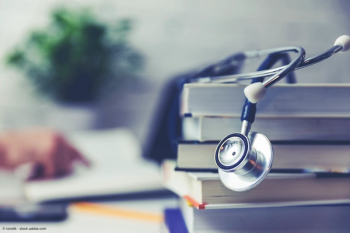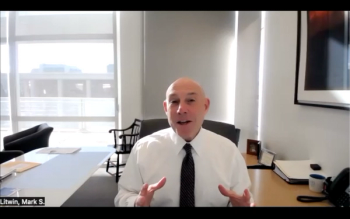
Never enough time? Try putting your phone down
Henry Rosevear, MD, shares what he learned from reducing time spent on his smartphone.
Dr. Rosevear is a urologist in community practice in Colorado Springs, CO. Urology Times blogs present opinions, advice, and news from urologists and other urology professionals. Opinions expressed by bloggers are their own, and do not necessarily reflect the views of Urology Times or its parent company, UBM Medica.
I was in a serious motor vehicle accident earlier this year. The accident, the result of a nail in my tire, gave me the opportunity to reassess where I was in my life. I wanted to share a story about one of the changes I made as a result.
I like to stay informed about the world, urologically and otherwise, which in this era of information overload can be almost too easy. To keep up with the world in general, I read numerous daily papers and subscribe to a few weekly journals. For my day job as a urologist, I read most of the major monthly urology journals.
I try to maintain a presence digitally via my Facebook page (
Also from Dr. Rosevear:
All of that takes time. After my car accident, I recognized that between each patient encounter in the clinic or in the operating room, the first thing I would do is check my phone for updates. I also became aware that I was setting my alarm earlier and earlier so that over an espresso or two I could read. My connection to my phone really hit home when one evening after deciding to put it down and spend the evening playing Gobblet Gobblers with my family (a 3-D tic-tac-toe game I highly recommend), one of my 3-year-old twins noted I didn't have my phone on me, found it, and told me I needed to look at it.
So I decided to try going without my phone. Now, I live in the real world so exceptions had to be made, as I still needed to take call and ignoring my mother who prefers calling over messaging seemed impolite. I also wasn't going to ignore my email and I still used the computer for work-related reading. But for the most part, I was going to stop using the phone. Further, I was going to trim (slash and burn may be more accurate) my evening phone habits and use the time instead to be with my family. How did it work?
Next:
My next observation? My children are more observant that I realized. Now that I wasn't rushing off after dinner to read something on my phone or respond to a tweet or an email, dinner lasted longer (the kids even asked if my phone was broke), I learned more about what the kids did this summer, and we were able to spend more time enjoying the mountains on the weekends as more of the family chores were done during the week.
And I think I was happier.
Read:
One of the rules of my experiment was that if I had a specific question, I was allowed to use my phone or computer to answer it. I just couldn't browse the phone aimlessly. So I started to read about phone addiction. Turns out I'm not the only person who has done this experiment and been surprised with the results. A recent
I also wonder if my phone addiction wasn’t part of the larger picture of physician burnout. Doctors are expected to be available all the time. I receive phone calls, texts, and emails from other physicians constantly both on call days and on days that I’m in the mountains with my family. Is our inability to disconnect and spend time away from medicine part of the reason so many of us are losing interest in our job?
But it's tough. If this is what addiction is, I can now empathize with addicts on a new level. At times I would find the phone in my hand with some news channel broadcasting and had no idea how it got there. I looked into apps to help with my addiction and found
I don't want to become a neo-Luddite and I have no intention of leaving the real world, so I continue to read the Journal of Urology andThe Economist (via the phone app as the print edition type is too darn small!), and I do answer emails. I am also going to continue to work on my blog, website, and billing course, but I have become more cognizant of the time I was staring at my phone and hope to continue to spend the time I’ve saved with my family.
I continue to be amazed at how, in retrospect, the nail that punctured my tire may have actually saved my life.
Newsletter
Stay current with the latest urology news and practice-changing insights — sign up now for the essential updates every urologist needs.






